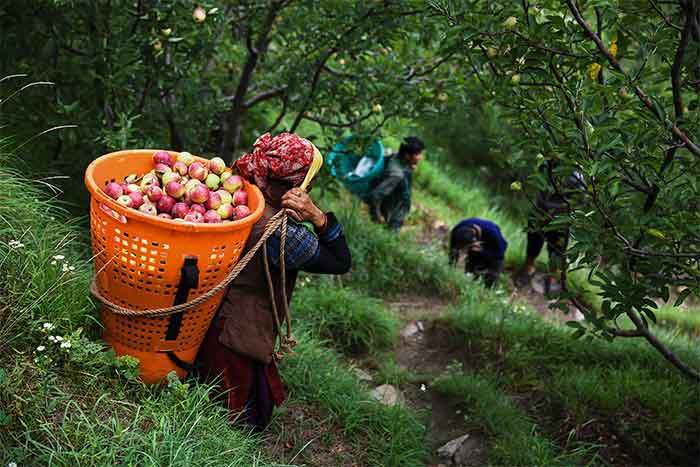
In many fruit orchards exotic species are being introduced arbitrarily with a view to improving yields and income. However in the hurry to achieve these objectives it is often forgotten that exotic species can also lead to the introduction of new pests and predators as well as leading to extensive damage to native species. These exotics can be harmful for native biodiversity in several ways. The success of exotic species in new conditions when planted in new environs is questionable at best, although some of the adverse impacts may be revealed only after a considerable time.
One example of such indiscriminate introduction relates to the famous apple orchards of Himachal Pradesh. As reported in local newspapers, quoting apple trade sources, apple plants from Italy and to a lesser extent the USA have been imported in thousands annually in recent years for selling to orchard owners without following the necessary protocols as the profit margins in these sales are very high. These reports also warn of new serious risks as a result of such indiscriminate and large-scale introduction , an issue which is reported to be already under the scrutiny of concerned officials ( as reported in Amar Ujala dated July 18, 2021, niji nurseriyon mein videsho se ayatit…)
In this context the findings of a recent research paper are important. This paper titled ‘Is the introduction of novel exotic forest trees a rational response to rapid environment change?’ has been written by Richard Ennos, Joan Cottrell, Jeanette Half and David O’Brien ( School of Biological Sciences, University of Edinburgh) and is very extensively referenced. Although written in the context of British forestry, it brings in several important aspects of introduction of exotic trees in current context and hence it is useful to note some of its findings here.
After examining several studies and a lot of evidence this paper states clearly in its overall conclusion—Where conservation of biodiversity is an objective, we find no support for introduction of any non-native species. This is based on the greater ecological and economic risk they pose compared to the use of native species. Use of non-natives is likely to lead to an increase rather than a decrease in pest and disease problems, and to hinder rather than support the retention of threatened native tree species and their associated biodiversity.
This research paper also notes—Over the last 60 years there has been an exponential increase in epidemics of introduced exotic trees pests and pathogens in Europe.
This study concludes –Using novel exotics rather than native or well-established exotics entails substantially increased economic risks. Evidence from historical introduction programs suggest that exotic introduction can decrease the resilience of native woodland to pests and pathogens.
Further this study tells us that the idea that novel exotics should be used to replace native species affected by increased pests and pathogens is unsupported. The introduction of untested exotic species carries a high risk of failure.
This study answers several important questions often asked in the context of exotic trees . Several of the important conclusions of this study are supported by some other studies as well. It is important to keep in mind all these risks and curb the currently prevailing trends for introduction of novel exotic species in orchards in several parts of the country.
Bharat Dogra is a journalist and author. His recent books include Man Over Machine and Planet in Peril.











































